#algernon edwards
Text
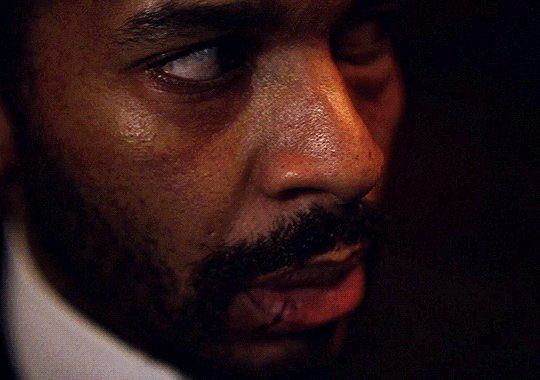

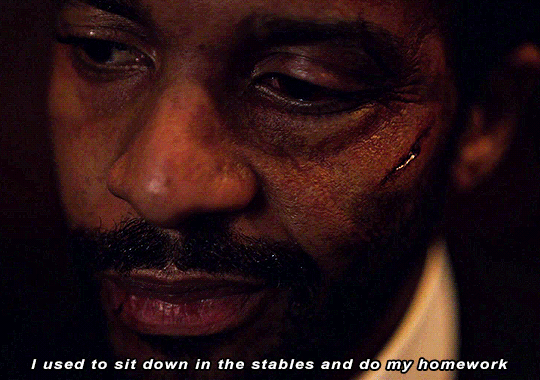
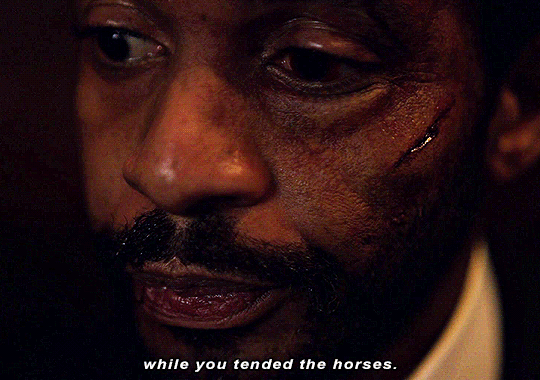
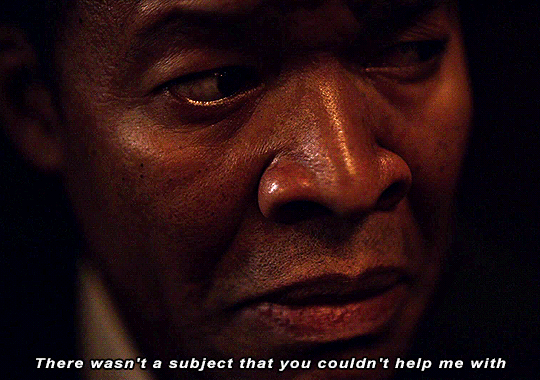
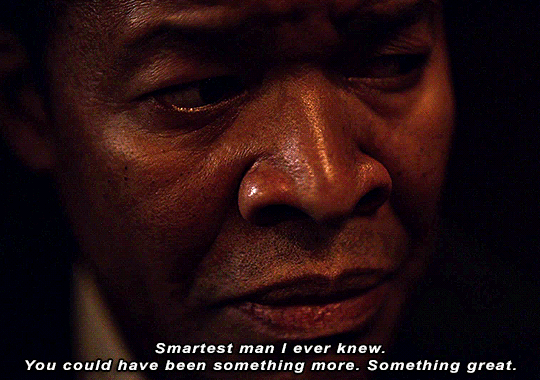
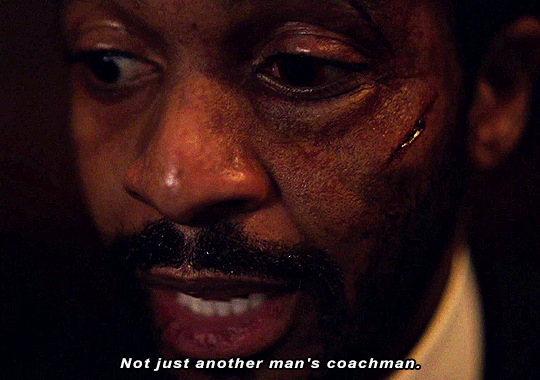
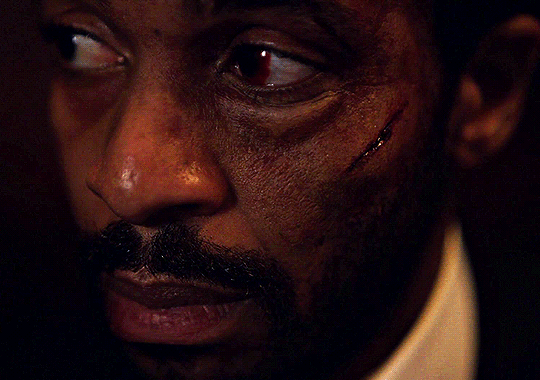
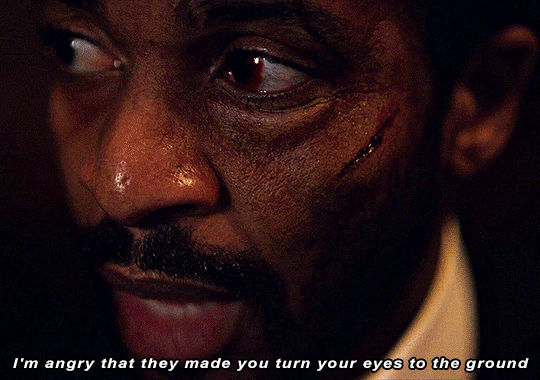
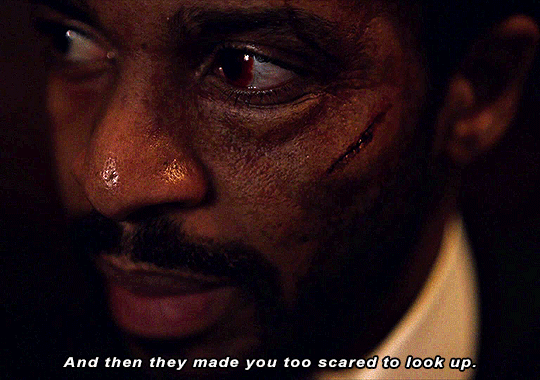
The good captain gave you everything. There's not a Negro in this city who's had more opportunities than you. Even that's not enough. What do you have to be so angry about?
#the knick#theknickedit#dr algernon edwards#andré holland#jesse edwards#leon addison brown#perioddramaedit#tvandfilm#filmtvcentral#televisiongifs#filmtv#filmandtv#tvedit#**
47 notes
·
View notes
Text

Day 3: Old OC
EDWARD AND ALGERNON.....Sorry I kinda forgot about you wasdfghjhgfd
23 notes
·
View notes
Photo

On the Scent, 1906 by Edward Algernon Stuart Douglas
#Edward Algernon Stuart Douglas#fineart#art#painting#artwork#masterpiece#fineartprint#gallery#museum#horse#horsebackriding#dogs
20 notes
·
View notes
Text
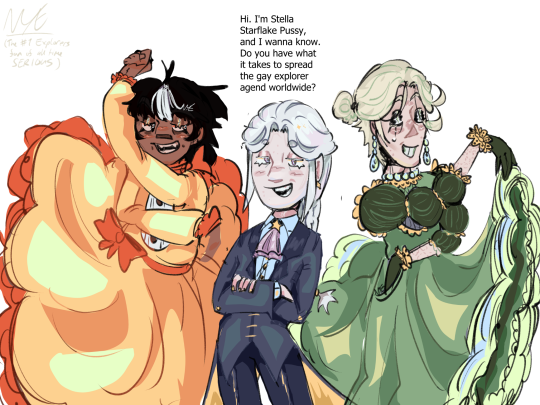
GET IT STELLA GET IT USE THOSE BOYS FOR WHAT THEY GOOD FOR
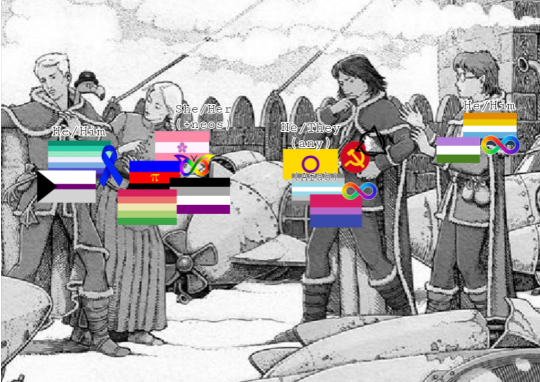
God this fandom has one great trailblazer
#The Polar Bear Explorers' Club#TPBEC#PBEC#The Ocean Squid Explorers' Club#TOSEC#OSEC#Alex Bell#Stella Starflake Pearl#Shay Silverton Kipling#Benjamin Sampson Smith#Ethan Edward Rook#Felix Evelyn Pearl#Zachery Vincent Rook#Algernon Augustus Fogg#PBEC fanart#original art#fanart#gay agenda#the explorers are gay real
6 notes
·
View notes
Note
how the primis crew feel about their partner has both irridescent snake and mice for pets
(A/N: I greatly apologize for the wait. I’m taking one day at a time right now and I want what I write to have so much care put into it)
Primis and Their S/O’s Pets (Iridescent Snake and Mice)
Edward Richtofen
He is absolutely fascinated! He’s familiar with mice since he’s worked with a few lab mice before. But it’s relief he can finally see them in a much better place being taken care of by their wonderful owner. He often asks to pet them. The mice adore him and will scurry up and down his arms.
Your iridescent snake however… “Mein gott! I have never seen such colorful scales on a snake before! This is remarkable.” He’s often tries to impress you with all that he could possibly know about snakes. He also prides on being the best possible parent to them with you.
Nikolai Belinski
Nikolai is not a fan of snakes but he does admire the snake from a distance. He does think the shiny look is really cool to look at. It took a lot of courage for him to eventually hold the snake. The whole time he stood still and shut his eyes so tight. You would’ve thought he was a statue. Once you got it off he had to sit down for a bit to catch his breath.
Your mice are much more adored by Nikolai. He asks if it’s ok to help feed them. He wishes he could make them tiny cakes or something other than boring diet stuff. You also let him name the mice. Half are names you chose and the other by him. Once, you caught him having a full-blown conversation in the middle of the night with a mouse in his hands. “I’m sorry, my love. I didn’t want to wake you. Besides, Artyom is a great listener!”
Takeo Masaki
He has an appreciation for both pets. He really loves the snake much more, to be honest. With your permission, he often sits on the floor with a whole snake coiled around him. Takeo tells you it’s one of his best friends now. “It’s like I’ve befriended a tiny rainbow.”
Your samurai sweetheart was kind enough to buy your mice a few toys like a new tiny wooden house and a little wheel for them to run around on. He only wanted to name one mouse, which he chose the name Strawberry.
Tank Dempsey
Tank thinks the snake is bad ass! He always compliments you and your snake a lot. He does try and take care of the snake, but he’s not so used to the feeding process at first. Considering he’s only owned a few cats, he asks you lots of questions about the snake.
Oh, by the way, Mr.Tough Guy Macho Man can’t handle tiny mice. He refuses to hold them but he tries to play it cool and make excuses. He still will help you out, he’s just a little scared of them. “D-don’t worry, babe. They’re cute but uh, I’m too strong, y’know? I don’t wanna hurt ‘em.”
#cod zombies#tank dempsey#edward richtofen#primis richtofen#primis takeo#primis nikolai#nikolai belinski#takeo masaki#primis dempsey#fun fact: I at one point thought about owning a mouse#if i ever do#i’m naming them algernon#or a flowery name
17 notes
·
View notes
Note
I'm coming from having fallen in love with the show bbc merlin and then reading roger lancelyn green, then howard pyle. I really loved green's way of presenting balin and balan, and the way they seal their own fates, and the dolorous stroke. (I also loved his gareth/beaumains! best part of the book in imo.) as for pyle, I loved his strange, wild magic adventures and the dialogue between arthur and merlin as merlin is tiredly asking him to please not fight every knight he sees. can you recommend anything with gareth, anything wonderfully tragic about balin and balan, anything that focuses on the magic and setting, or anything that just made you laugh to read?
Hi anon!
Welcome to Arthuriana. I loooove Howard Pyle. Have you read all 4 books? Highly recommend the whole series. Sounds to me as if you’re looking for more retellings, so that’s what I’ll give you.
As always, if the author is out of print or has passed, I’ll share a PDF. But if they’re alive, I link to goodreads so you can learn more about the book and decide if you want to purchase.
Gareth Beaumains
Books
Exiled From Camelot by Cherith Baldry
Hunt of the Hart Royal by Cherith Baldry
Under Camelot's Banner by Sarah Zettel
Gareth and Lynette by Alfred Lord Tennyson
How Gareth Won His Spurs by Reverend James Yeames
The Savage Damsel and The Dwarf by Gerald Morris
Arthur Rex by Thomas Berger
Movies & TV [Watch movies here!] [Watch TV Shows here!]
Knights of the Round Table (1953)
Sword of Lancelot (1963)
Arthur of the Britons (1972-73)
BBC The Legend of King Arthur (1979)
Kaamelott First Installment (2021)
Balin & Balan
Books
Balin and Balan by Alfred Lord Tennyson
The Tale of Balen by Algernon Charles Swinburne
The Acts of King Arthur and His Noble Knights by John Steinbeck
The Knight With the Two Swords by Edward M. Erdelac
Magic & Setting
Books
The Crystal Cave, The Hollow Hills, The Last Enchantment, & The Wicked Day by Mary Stewart
The Warlord Chronicles by Bernard Cornwell
The Book of Mordred & The Last Knight of Albion by Peter Hanratty
Lancelot & Gawain by Gwen Rowley
The Squire's Tales Series by Gerald Morris
Tales From the Mabinogion by Gwyn Thomas, Kevin Crossley-Holland, & Margaret Jones
The Quest for Olwen by Gwyn Thomas, Kevin Crossley-Holland, & Margaret Jones
Sir Gawain and The Green Knight by Selina Hastings
Sir Gawain and The Loathly Lady by Selina Hastings
Movies & TV [Watch movies here!] [Watch TV Shows here!]
The Adventures of Sir Galahad (1949)
The Adventures of Sir Lancelot (1956-57)
Knights of the Round Table (1953)
Prince Valiant (1954)
The Sword in The Stone (1963)
Camelot (1967)
Arthur of the Britons (1972-73)
Gawain and The Green Knight (1973)
Monty Python and The Holy Grail (1975)
BBC The Legend of King Arthur (1979)
Excalibur (1981)
Fire and Sword (1981)
Merlin and The Sword (1985)
Merlin (1998)
Kaamelott (2005-09)
Starz Camelot (2011)
Arthur & Merlin (2015)
Arthur & Merlin: Knights of Camelot (2020)
Kaamelott First Installment (2021)
Laugh Out Loud Funny to Read
Lancelot & Gawain by Gwen Rowley
The Squire's Tales Series by Gerald Morris
Muppet King Arthur by Paul Benjamin & Patrick Storick
Modern Arthur Series by Peter David
Arthur Rex by Thomas Berger
Hope that gives you some stuff to chew on, anon. Have a great week!
#arthuriana#arthurian legend#arthurian mythology#arthurian literature#sir gareth#gareth beaumains#sir balan#sir balin#ask#anonymous
31 notes
·
View notes
Text
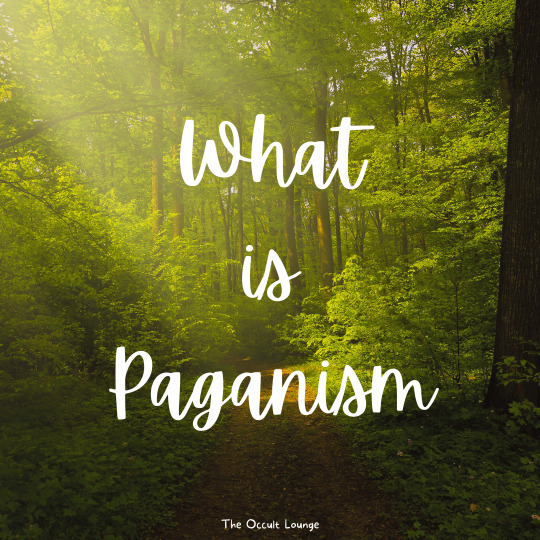
• Paganism is a term first used pejoratively in the fourth century by early Christians for people in the Roman Empire who practiced polytheism or ethnic religions other than Judaism.
• Neo-Paganism is a modern religious movement incorporating beliefs or practices from outside the main world religions, especially nature worship.
• It is Polytheistic in nature; worship of or belief in multiple deities, which are usually assembled into a pantheon of gods and goddesses, along with their own religions and rituals but can also just be a reverence for nature without any belief in deities.
A Brief Pagan Time-line:
• 300-353 Emperor Constantine orders the pillaging of Pagan Temples in the Roman Empire and begins to ban pagan rituals under threat of death
• 363 to 375 Emperor Julian and his next three successors lead a revival of Paganism in the Roman Empire while also tolerating Christianity.
• 381 Emperor Theodosius begins a war on Paganism. Visits to temples are banned, the sacred fire of Vesta is extinguished, the Olympics are banned, Pagan rituals are banned, and many holy Pagan sites throughout the Roman Empire are destroyed by force.
• 410 Rome is sacked by the Visigoths. Many Romans viewed it as punishment for turning away from the gods.
• 400s to 500s Paganism in the Roman Empire is forced to go underground, Pagan libraries are burnt, and it becomes official policy to hunt down and torture the remaining Pagans. Some Pagan festivals are incorporated in Christianity.
• 600s-1300s Many Pagan Resurgences occur while many nations go under the influence of Christianity
• 1300s to 1700s a series of witchcraft trials sweep through Europe leading to an estimated 40,000 to 100,000 deaths. How the trials relate to Paganism is debated.
• 1492 Christianity is first introduced to the Americas and the African Diaspora soon begins.
• 1780s to 1860s The Romantic Movement emerges in Europe. Its members loved nature and were influenced by folklore and mythology. Several of the Romanticists including Thomas Love Peacock, Thomas Jefferson Hogg, Edward Calvert, and Algernon Swineburne wrote poetry praising the old gods, built altars to Pan, and began to identify as Pagan.
• 1904 Aleister Crowley transcribes The Book of the Law while in Egypt and proclaims the establishment of the “new age” of the Æon of Horus.
• 1910 Rider-Waite tarot deck first published
• 1921 The Witch-Cult in Western Europe by Margaret Murray is published and the Witch-Cult Hypothesis is further popularized.
• 1939 Gerald Gardner is initated into the New Forest Coven, and believes it to be ancient.
• 1954 Witchcraft Today by Gerald Gardner is published and leads to the spread of Wicca.
• 1960s Interest in Paganism and new age philosophy explodes.
• 1980s The Satanic Panic occurs
• 1980s-2000s Neo-Paganism finds a new breath of life and worshipers
26 notes
·
View notes
Text
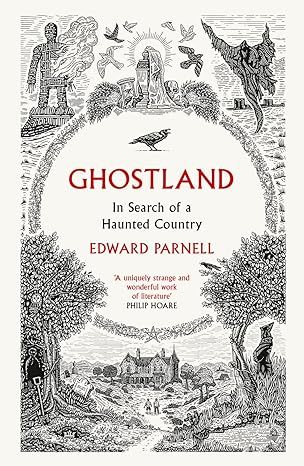
SHORTLISTED FOR THE PEN ACKERLEY PRIZE 2020
‘A uniquely strange and wonderful work of literature’ Philip Hoare
‘An exciting new voice’ Mark Cocker, author of Crow Country
In his late thirties, Edward Parnell found himself trapped in the recurring nightmare of a family tragedy. For comfort, he turned to his bookshelves, back to the ghost stories that obsessed him as a boy, and to the writers through the ages who have attempted to confront what comes after death.
In Ghostland, Parnell goes in search of the ‘sequestered places’ of the British Isles, our lonely moors, our moss-covered cemeteries, our stark shores and our folkloric woodlands. He explores how these landscapes conjured and shaped a kaleidoscopic spectrum of literature and cinema, from the ghost stories and weird fiction of M. R. James, Arthur Machen and Algernon Blackwood to the children’s fantasy novels of Alan Garner and Susan Cooper; from W. G. Sebald’s The Rings of Saturn and Graham Swift’s Waterland to the archetypal ‘folk horror’ film The Wicker Man…
Ghostland is Parnell’s moving exploration of what has haunted our writers and artists – and what is haunting him. It is a unique and elegiac meditation on grief, memory and longing, and of the redemptive power of stories and nature.
https://amzn.to/3EZk2of
7 notes
·
View notes
Text
list of pdfs on my phone because i know everyone wants to find out
race, discourse, and the origin of the americas: a new world view (many authors. i'm not writing all that)
what is to be done? (vladimir lenin)
"chemistry and the 19th-century american pharmacist" (gregory j. higby)
the torture garden (octave mirbeau)
"the vane sisters" (vladimir nabokov) + questions for discussion
"the tell-tale heart" (edgar allan poe)
"the lottery" (brainerd duffield)
slideshow about different english cities during the industrial revolution
the compleat works of nostradamus
"terms of endearment in english" (julia landmann)
"speech reflections in late modern english pauper letters from dorset" (anne-christine gardner)
"slopjank prographilose" (rose q. drifting & magnesium oxide)
a few pages of the 1897 sears, roebuck & co. catalog + some other related things
orientalism (edward said)
"in event of moon disaster" (bill safire)
ragtime (e. l. doctorow)
enough to make you blush: exploring erotic humiliation (princess kali)
"you're a mean one, mr. grinch" (dr. seuss) + close reading questions
merry muses of caledonia (robert burns)
"women and the english civil wars" lesson outline
"the concept of the left" (leszek kołakowski)
"kids in the early 1900s" (betty debnam)
"heterosexualism and the colonial/modern gender system" (maría lugones)
"for heidi with blue hair" (fleur adcock)
"flowers for algernon" (daniel keyes)
excerpt of the beginning of m*a*s*h (tim kelly)
tristan tzara poetry collection
"the nature of the beast: the portrayal of satan in the ballads of seventeenth century england" (christopher bailey)
"all the king's horses" (kurt vonnegut)
"conditional divorce in ottoman society: a case from seventeenth-century erzurum" (bilgehan pamuk)
"gender oppression in the enlightenment era" (barbara cattunar)
who's afraid of virginia woolf? (edward albee)
"visual difference & disfigurement in the arts"
"trans-misogyny primer" (julia serano)
the brothers karamazov (fyodor dostoyevsky)
the other victorians: a study of sexuality and pornography in mid-nineteeth century england (steven marcus)
the mistborn trilogy (brandon sanderson)
"the life of an unknown assassin: leon czolgosz and the death of william mckinley" (cary federman)
the brothers karamazov (fyodor dostoyevsky) again
spanish idioms with their english equivalents: embracing nearly ten thousand phrases (sarah cary becker & federico mora)
a sensation novel (w. s. gilbert)
basic principles of marxism–leninism: a primer (jose maria sison)
russia under the old regime (richard pipes)
tristan tzara: dada and surrational theorist (elmer peterson)
pan tadeusz (adam mickiewicz)
psycho nymph exile (porpentine heartscape)
1984 (george orwell)
neath to reach zine: the traveler's guide to [illegible] (i am not writing all that!!)
the dada painters and poets: an anthology (i continue to not write all that)
machine of death (still not writing all that)
"merchants, proto-firms, and the german industrialization: the commercial determinants of nineteenth century town growth" (gavin greif)
"introduction to the history of
mental illness"
"girl detective & the mystery of the sap-stained skirt" (porpentine heartscape)
gadsby (ernest vincent wright)
feeling very strange: the slipstream anthology (authors galore.)
english women's clothing in the nineteeth century (c. willett cunnington)
socialism: utopian and scientific (friedrich engels)
the waste land (t. s. eliot)
"debility and disability in edith wharton's novels" (karen weingarten)
death of riley (rhys bowen)
"the black vampyre: a legend of st. domingo" (uriah derick d'arc)
raoul hausmann and berlin dada (timothy o. benson)
flight out of time: a dada diary by hugo ball
art and production (boris arvatov)
"the culture industry: enlightenment as mass deception" (theodor adorno & max horkheimer)
a gilded lady (elizabeth camden)
"changing narratives of martyrdom in the works of huguenot printers during the wars of religion" (byron j. hartsfield)
112 gripes about the french
"the spelling of the country name "romania" in british official usage: from uncertainty to standardization" (paul woodman)
"sarajevo 1914: trial process against young bosnia – illusion of the fair process" (veljko m. turanjanin & dragana s. čvorović)
6 notes
·
View notes
Text
What Godly Parent/CHB Cabin I Think Bully Characters Would Be In.
Zeus
Zoe Taylor.
Bif Taylor.
Poseison
Gary Smith.
Hades
Pete Kowalski.
Ares
Russel Northrop.
Seth Kolbe.
Jimmy Hopkins.
Thad Carlson.
Dan Wilson.
Wade Martin.
Christy Martin.
Athena
Beatrice Trudeau.
Donald Anderson.
Parker Ogilvie.
Max MacTavish.
Peanut Romano.
Justin Vandervelde.
Aphrodite
Mandy Wiles.
Derby Harrington.
Pinky Gauthier.
Gord Vendome.
Edward Seymour II.
Lola Lombardi.
Kirby Olsen.
Apollo
Trent Northwick.
Cornelius Johnson.
Norton Williams.
Bryce Montrose.
Eunice Pound.
Vance Medici.
Demeter
Bucky Pasteur.
Tom Gurney.
Troy Miller.
Angie Ng.
Bryce Montrose.
Dionysus
Duncan.
Juri Karamazov.
Casey Harris.
Hal Esposito.
Karl Branting.
Hephaestus
Johnny Vincent.
Lucky De Luca.
Ricky Pucino.
Hermes
Lefty Mancini.
Melvin O’Connor.
Earnest Jones.
Ethan Robinson.
Algernon Papadopoulos.
Luis Luna.
Fatty Johnson.
Hypnos.
Ivan Alexander.
Nemesis
Damon West.
Constantinos Brakus.
Davis White.
Nike
Chad Morris.
Ted Thompson.
Bo Jackson.
Tad Spencer.
Staff bonus
Chiron
Ms Philips
Mr. D
Mr. Galloway
#this has been in the drafts for a bit#and I NEED you all to love the Percy Jackson AU#bully scholarship edition#bully canis canem edit#canis canem edit#bully rockstar#bully cce#bullworth academy#gary smith#jimmy hopkins#pete kowalski#zoe taylor#johnny vincent#derby harrington#russel northrop#ted thompson#earnest jones#trent northwick#damon west#bif taylor#peanut romano#beatrice trudeau#pinky gauthier#mandy wiles#lola lombardi#bully edward seymour ii#seth kolbe#max mactavish#karl branting#percy jackson au
25 notes
·
View notes
Text
Ten Books to Know Me
Thank you @indigo-scarf for the tag! It was a bit of a struggle to figure these out - all the most important texts to know me are academic/non-fiction ones, but they're too niche for an internet post. So instead, here are 10 fiction works that I found moving with a sentence from their Goodreads page.
Flowers for Algernon by Daniel Keyes: The story of a mentally disabled man whose experimental quest for intelligence mirrors that of Algernon, an extraordinary lab mouse.
Silence by Shusaku Endo: In a perfect fusion of treatment and theme, this powerful novel tells the story of a seventeenth-century Portuguese priest in Japan at the height of the fearful persecution of the small Christian community.
Pride and Prejudice by Jane Austen: The romantic clash between the opinionated Elizabeth and her proud beau, Mr. Darcy, is a splendid performance of civilized sparring.
One Flew Over the Cuckoo's Nest by Ken Kesey: Tyrannical Nurse Ratched rules her ward in an Oregon State mental hospital with a strict and unbending routine, unopposed by her patients, who remain cowed by mind-numbing medication and the threat of electric shock therapy.
Harry Potter and the Half Blood Prince by JKR: Harry's sixth year at Hogwarts has already got off to an unusual start, as the worlds of Muggle and magic start to intertwine...
The House of the Spirits by Isabel Allende: The House of the Spirits is an enthralling saga that spans decades and lives, twining the personal and the political into an epic novel of love, magic, and fate.
The Brothers Karamazov by Fyodor Dostoevsky: Through the gripping events of their story, Dostoevsky portrays the whole of Russian life, is social and spiritual striving, in what was both the golden age and a tragic turning point in Russian culture.
These Happy Golden Years by Laura Ingalls Wilder: Friendship soon turns to love for Laura and Almanzo in the romantic conclusion of this Little House book and series.
The Giver by Lois Lowry: At the age of twelve, Jonas, a young boy from a seemingly utopian, futuristic world, is singled out to receive special training from The Giver, who alone holds the memories of the true joys and pain of life.
The Memory Keeper's Daughter by Kim Edwards: So begins this story that unfolds over a quarter of a century - in which these two families, ignorant of each other, are yet bound by the fateful decision made that long-ago winter night.
I'll tag @merlins-sequined-hotpants, @leesielou, @in-love-with-remus-lupin, @messrmoonyy, @passionatewrites, @evesaintyves, @mumka-fanfic, @elizabethgoudge, @wisdomofwinter, @whinlatter, and @artemisia-black. Hopefully at least a couple of you haven't gotten this tag yet!
#tag games#books#book recs#flowers for algernon#silence#pride and prejudice#one flew over the cuckoo's nest#harry potter and the half blood prince#the house of the spirits#the brothers karamazov#these happy golden years#the giver#the memory keeper's daughter#daniel keyes#shusaku endo#jane austen#ken kesey#isabel allende#fyodor dostoevsky#laura ingalls wilder#lois lowry#kim edwards
18 notes
·
View notes
Note
HI CAN YOU FINALLY STOP QUEER BAITING ME AND LET ALGERNON AND EDWARD KISS IT DOESNT MATTER IF ITS UNETHICAL CONSIDERING YKNOW EDWARD KILLED HIS OWN DAUGHTER I THINK ETHICS ARE THE LAST THING HES WORRIED ABOUT



There :) The 100% canon kiss between Edward and Algernon :)
8 notes
·
View notes
Text
Top 9 Books
@pegasusdrawnchariots tagged me for this! And it was so frustrating bc i dont have access to my bookshelf to just pick what I reread the most. This took like an hour of serious deliberation LOL (also I banned myself from listing Shakespeare plays)
1. To Kill a Mockingbird - Harper Lee
2. Flowers for Algernon - Daniel Keyes
3. Stardust - Neil Gaiman
4. Twilight Saga - Smeyer
5. Tuesdays with Morrie - Mitch Albom
6. Le Petit Prince - Antoine de Saint-Exupery
7. The Miraculous Journey of Edward Tulane - Kate DiCamillo
8. The Hobbit - Jirt
9. Coraline - Neil again
Im tagging @ivymarquis @cals-laundry @ksslr @gaeadene @a-restful-samoyed @potatoscreations @pettyprocrastination but no pressure! 💖
4 notes
·
View notes
Text
What was read 2023
The Lottery & Other Stories - Shirley Jackson (1949~)
A Life Standing Up - Steve Martin (2007)
Blood Meridian - Cormac McCarthy (1985)
Licks of Love -John Updike (2000)
Lovesickness Collection - Junji Ito (2011)
Flowers for Algernon - Daniel Keyes (1966)
The Anarchy The relentless rise of the East India Company - William Dalrymple (2019)
The Wisdom of Insecurity - Alan W.Watts (1951)
War and Peace - Leo Tolstoy (1869)
The Course of Love - Alain de Botton (2016)
Tender is the Night - F Scott Fitzgerald (1934)
Housekeeping - Marilynne Robinson (1980)
Moby Dick - Herman Melville (1851)
A Faint Heart (1848)White Nights (1848) A Little Hero (1857)An Unpleasant Predicament (1862) The Crocodile (1865) Bobok (1873) A Gentle Spirit/The Meek One* (1876) T1877) Fyodor Dostoevsky
The Maltese Falcon - Dashiell Hammett (1929)
Haunted - Chuck Palahniuk (2005)
The Name of the Rose - Umberto Eco (1980/3)
Diary - Chuck Palahniuk (2003)
Darkness Visible - William Styron (1990)
The Poorhouse Fair - John Updike (1958)
The Sound and the Fury - William Faulkner (1929)
The First Forty-Nine Stories - Ernest Hemingway (1939)
Mythos - Stephen Fry (2017)
The Good Earth - Pearl S. Buck (1931)
The Road to Wigan Pier - George Orwell (1936)
The House of the Dead - Fyodor Dostoevsky (1861)
Walden - Henry David Thoreau (1854)
The Gambler - Fyodor Dostoevsky (1866)
Normal People - Sally Rooney (2018)
Joy in the Morning - P. G. Wodehouse (1947)
After Dark - Haruki Murakami (2004)
The Lodger - Marie Belloc Lowndes (1913)
The Thing Around Your Neck - Chimamanda Ngozi Adichie (2009)
The Right Stuff - Tom Wolfe (1979)
Family Happiness - Leo Tolstoy (1859)
The Death of Ivan Ilyich - Leo Tolstoy (1866)
The Kreutzer Sonata - Leo Tolstoy (1889)
The Devil - Leo Tolstoy (1911)
Nausea - Jean-Paul Sartre (1938)
True History of the Kelly Gang - Peter Carey (2000)
Foucault’s Pendulum - Umberto Eco (1988/9)
Inferno - Dante Alighieri (~1308-1321)
Iliad - Homer (Samuel Butler translation 1898)
Carry On, Jeeves - P.G. Wodehouse (1925)
The Passenger - Cormac McCarthy (2022)
Stella Maris - Cormac McCarthy (2022)
Fear: Trump in the White House - Bob Woodward (2018)
Rubber Balls and Liquor - Gilbert Gottfried (2011)
kiss me like a stranger* - Gene Wilder (2005)
The Adventures of Auguie March - Saul Bellow (1953)
Rickles’ Book A memoir - Don Rickles (2007)
The ‘Rosy Crucifixion’ Trilogy. Sexus - Henry Miller (1949)
The Heart of a Dog - Milhaud Bulgakov (1925)
Dracula - Bram Stoker (1897)
The Grapes of Wrath - John Steinbeck (1939)
Albert & the Whale - Philip Hoare (2021)
A Waiter in Paris - Edward Chisholm (2022)
The Road to Oxiana - Robert Byron (1937)
2 notes
·
View notes
Note
Which writer(s) have influenced your own writing the most? Either in content or style, though I'm more curious about style.
It actually depends a bit on the story. The atmosphere I want to create, and the kind of sound/voice I'm striving for varies depending upon what kind of story I'm telling, so some writers have influenced me more on certain projects than others, but generally (and some of these are more recent), I would say, T.H. White, Dorothy Dunnett, Ursula Le Guin, Terry Pratchett, and Ray Bradbury, amongst others. I also read a lot of poetry, and some of my faves are Wilfred Owen, Rupert Brooks, Siegfried Sassoon (big fan of people going to WWI and writing poetry about it), Keats, Shelley, Edward Thomas (see also his nature writing), Tennyson, Algernon Charles Swinburne, plus a bunch of Russians (though they don't exactly help me when writing in English).
That's all really for style; in terms of content, I actually get a lot of my ideas from nonfiction.
5 notes
·
View notes
Text
The Events At Poroth Farm Read Along: June 11
Until August 20th, stay tuned for the unfolding of the terrible truth about The Events at Poroth Farm, by T.E.D Klein!
(This is where it starts getting good, everyone!)
***
Jeremy remarks upon the humidity of the area during the day, compounded with the chill at night. He spends most of the day finishing Melmoth the Wanderer by Charles Maturin, commenting on how it’s a book that wants the reader to hate and simply causes unconstructive rage, but still interesting and worth assigning to his class. Before dinner he then reads The White People by Arthur Machen and is immensely struck by the story:
‘the sections from the young girl’s notebook were…staggering. That air of paganism, the malevolent little faces peeping from the shadows, and those rites she can’t dare talk about […] it must be the most persuasive horror story ever written’. [1]
While walking to the farmhouse for dinner, the Poroths already having gone inside, and without really knowing the reason why, Jeremy climbs the old tree in the side yard and stands on a sturdy branch to make strange faces and gestures. ‘I must have looked like a madman’s shadow as I made signs to the wood and the moon.’ [2]
During dinner, Jeremy and Sarr get onto the usual topic of conversation: the cats, and the dead animals they keep bringing back from the woods or fields and leaving them on the porch, almost as an offering.
Once Jeremy leaves the Poroths to their television (deploring their taste in programs!) he conducts his nightly routine of hunting spiders with his extra powerful insect spray, meant for outdoor use only, and spraying his screens for good measure; trying to avoid killing moths and actively avoiding any slaughter of fireflies. Afterwards he sits in bed to read Algernon Blackwood's Ancient Sorceries and coming to dwell upon the Poroths’ seven cats, and all the numerous names they have for each of them. The only cat that doesn’t have multiple names is Bwada, Sarr’s pet from before he married Deborah; the oldest and by far the meanest of the cats, who’s bitten Deborah and guests in the past but thankfully appears to be afraid of Jeremy and keeps her distance.
Jeremy hears sounds from the farmhouse as the Poroths sing their devotions, and then there is silence. Jeremy plans to stay up and read a little more, when-
‘Something odd just happened. I’ve never heard anything like it. While writing for the past half hour I’ve been aware, if half consciously, of the crickets. Their regular chirping can be pretty soothing, like the sound of a well-tuned machine. But just a few seconds ago they seemed to miss a beat. They’d been singing along steadily, ever since the moon came up, and all of a sudden they just stopped for a beat – and then they began again, only they were out of rhythm for a moment or two, as if a hand had jarred the record or there’d been some kind of momentary break in the natural flow…’ [3]
While the insects sound normal enough once more, Jeremy decides to return to reading The Castle of Otranto in the hopes it will help him to fall asleep.
[1] The Events at Poroth Farm, by T.E.D. Klein, originally published in From Beyond the Dark, edited by Edward P. Berglund in December 1972; this edition found in The Cthulhu Mythos MEGAPACK ®: 40 Modern and Classic Lovecraftian Stories, Loc 2269 of 17308
[2] Ibid
[3] Ibid, Loc 2301 of 17308
(If you want to read along and delight in T.E.D. Klein’s magnificent novella, you can find it in American Supernatural Tales (Penguin Classics) or The Cthulhu Mythos MEGAPACK ®: 40 Modern and Classic Lovecraftian Stories. If it turns out that I get a cease and desist from Klein et al, go and read the novella regardless!)
#the events at poroth farm#t.e.d. klein#Theodore “Eibon” Donald Klein#the events at poroth farm read along#long post
2 notes
·
View notes